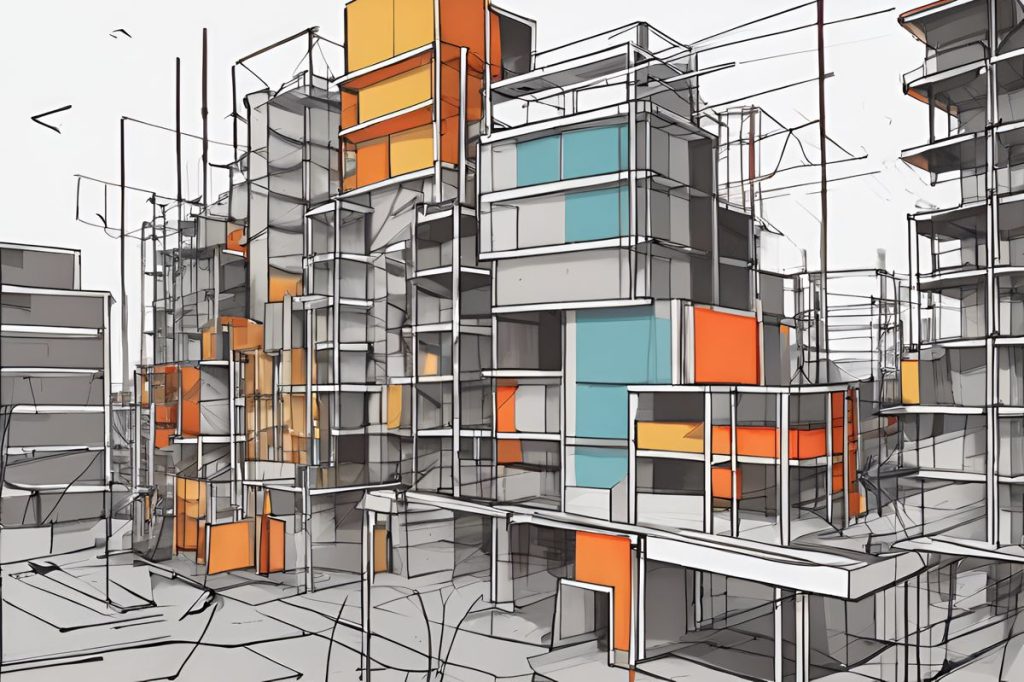The Cyprus construction sector faces a crisis of building violations, jeopardizing public safety and environmental integrity. Etek’s chairman calls for urgent enforcement of laws and modernization of procedures to combat the growing lawlessness in the industry.
What crisis is the Cyprus construction sector currently facing?
The Cyprus construction industry is facing a crisis characterized by a surge in building violations, threatening public safety, environmental integrity, and architectural heritage. Etek’s chairman highlights the urgent need for enforcement of laws, modernization of procedures, and professional integrity to combat the growing impunity and lawlessness in the sector.
The Alarming State of Construction
The construction industry in Cyprus is currently facing a tumultuous period, with a significant rise in building violations causing widespread concern. According to the Scientific and Technical Chamber (Etek), the sector appears to be in a state of disarray. Etek’s chairman, Constantinos Constanti, underscored the severity of the situation by stating that the rate of arbitrary construction practices is climbing rapidly, leading to a chain reaction of negative consequences. The affected areas range from historic monasteries like Cape Greco’s and Osiou Avakoum’s to urban developments in Limassol’s Neapolis and Trimiklini, not excluding the serious incident of an explosion on a construction site in Engomi.
Constanti laments that these are only a handful of recent examples, and the issue is far more extensive. Violations not only pose a threat to the environment and architectural heritage but also jeopardize public health and safety. Furthermore, they undermine the public’s sense of justice, as there seems to be an escalating frequency and severity of these incidents.
A Vicious Cycle of Impunity
The chairman expressed his frustration with the apparent cycle of inaction that follows each occurrence: public statements, investigations, and interventions that only state the obvious without enacting any real change until the next incident emerges. There’s a growing perception of impunity, as those who follow the rules are often burdened by cumbersome procedures and delays. In contrast, those who bypass regulations frequently do so without facing significant consequences.
This cycle has created an environment where illegal actions are sometimes tolerated, leading to further lawlessness. Etek has taken a proactive stance by proposing measures to simplify and expedite licensing procedures, acknowledging that delays can serve as an excuse for starting operations and unauthorized developments.
Enforcement and Modernization: The Path Forward
For real progress, local authorities must play a pivotal role in monitoring construction sites and curtailing illegal and unauthorized buildings. Constanti emphasizes that to break this cycle, a clear and firm message must be sent: illegal activities will no longer be tolerated. This includes not only exemplary and severe punishment for offenders but also the immediate demolition of illegal structures.
The state, with all its branches, including central and local governments, has the responsibility to enforce existing legislation and modernize the tools necessary to uphold legality. Without a concerted effort to address these issues, the future of Cyprus’s construction industry looks increasingly bleak, as warned by Etek’s chairman.
Proposals for Change and Professional Integrity
In a call to action, Constanti urged Etek’s members to uphold the dignity of their profession and adhere to principles of integrity rather than yielding to the interests of third parties. By championing honesty and ethical practices, professionals can contribute to a more sustainable and reputable construction sector.
Etek’s submitted proposals are aimed not only at improving operational efficiencies but also at restoring faith in the system that governs construction. These proposals focus on streamlining procedures that can help speed up the licensing process while ensuring compliance with the law. This balanced approach is crucial for the industry to move forward and for professionals to take pride in their work.
What crisis is the Cyprus construction sector currently facing?
The Cyprus construction industry is facing a crisis characterized by a surge in building violations, threatening public safety, environmental integrity, and architectural heritage. Etek’s chairman highlights the urgent need for enforcement of laws, modernization of procedures, and professional integrity to combat the growing impunity and lawlessness in the sector.
What are some examples of recent building violations in Cyprus?
Recent examples of building violations in Cyprus include incidents at historic monasteries like Cape Greco’s and Osiou Avakoum’s, urban developments in Limassol’s Neapolis and Trimiklini, as well as a serious explosion on a construction site in Engomi. These violations pose a threat to the environment, architectural heritage, public health, and safety.
What is the cycle of inaction that follows building violations in Cyprus?
The cycle of inaction following building violations in Cyprus typically involves public statements, investigations, and interventions that do not result in significant changes or consequences for offenders. This cycle has created a perception of impunity, where illegal activities are sometimes tolerated, leading to further lawlessness in the construction sector.
What is being proposed to address the crisis in the Cyprus construction sector?
To address the crisis in the Cyprus construction sector, Etek has proposed measures to simplify and expedite licensing procedures, improve monitoring of construction sites, and enforce existing legislation more effectively. Additionally, there is a call for professionals in the industry to uphold principles of integrity and professionalism to restore faith in the system governing construction.

